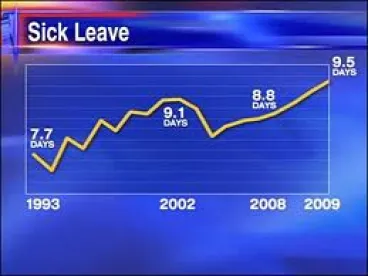Employers in the City of San Diego will need to review their current paid sick leave and minimum wage policies to ensure they comply with a voter-approved ordinance extending paid sick leave and raising the minimum wage for workers in the City.
Proposition I, the “Referendum of Ordinance Relating to Earned Sick Leave and Minimum Wage to be Provided to Employees Working in the City of San Diego” (Ordinance No. O-20390) was passed on June 7, 2016. The Ordinance is expected to take effect immediately following certification of the election results.
Who is Covered
Persons entitled to benefits under the Ordinance if they perform at least two hours of work within the geographic boundaries of the City in one or more calendar weeks of the year and qualify as an employee entitled to minimum wage under California law.
Limited exceptions apply to individuals authorized to be employed for less than minimum wage if employed under a special license for handicapped individuals, persons employed under a publicly subsidized summer or short-term youth employment program, or certain student-employees or counselors of organized camps as provided under the California Labor Code.
Minimum Wage
The minimum wage in the City will be increased to $10.50 an hour. The minimum wage in the City will be raised to $11.50 an hour effective January 1, 2017. Starting January 1, 2019, the minimum wage will increase by an amount corresponding to the prior year’s increase, if any, in the cost of living, as defined by the Consumer Price Index.
If the California (currently, $10 per hour) or federal (currently, $7.25 per hour) minimum wage exceeds the minimum wage set by the Ordinance, the minimum wage will be increased to the higher of the California or federal minimum wage.
Earned Sick Leave Requirements
How much earned sick leave can employees accrue?
Employers must provide covered employees with one hour of earned sick leave for every 30 hours worked by the employee within the geographic boundaries of the City. Employers may not limit the amount of earned sick leave that employees accrue.
Employers who provide an amount of paid leave, including paid time off, vacation, or paid personal days, sufficient to meet the requirements of the Ordinance, and allow use of such paid time off under the same conditions and purposes as the Ordinance, are not required to provide additional leave.
When do employees accrue, and when can they use, earned sick leave?
Employees begin to accrue earned sick leave upon hire, and existing employees will begin accruing earned sick leave immediately. Employees may begin using earned sick leave on their 90th day of employment.
Can employers limit the amount of earned sick leave used?
Employers may limit use of earned sick leave to 40 hours in a consecutive 12-month period (to be determined by the employer). However, employers may not limit the amount of earned sick leave accrued. All unused, accrued earned sick leave must be carried over to the next year.
For what reasons can an employee use earned sick leave?
Employees may use earned sick leave for their own medical care and for the medical care of certain covered family members. Employees also may use earned sick leave for themselves and covered family members for reasons associated with domestic violence, sexual assault, or stalking, including medical care, counseling, relocation, or legal services. In addition, employees may use leave time for a public health emergency.
Can employers set restrictions on the use of earned sick leave?
When the use of earned sick leave is foreseeable, employers may require reasonable advance notice not to exceed seven days prior to the date that the earned sick leave is to be used. When the need for used of earned sick leave is not foreseeable, employers may require employees to provide notice of the need to use earned sick time as soon as practicable.
If an employee is absent for more than three consecutive work days, the employer may require reasonable documentation that earned sick leave was taken for a permissible reason. Employers must accept reasonable documentation (which does not specify the nature of the injury, illness or medical condition) signed by a licensed health care provider regarding the amount of earned sick leave required.
Do employers have to pay out unused, accrued earned sick leave upon termination?
Employers are not required to pay out earned sick leave upon termination of employment if the earned sick leave is separate and distinct from a paid time off or vacation plan.
Notice and Posting Requirements
Employers must post a notice published each year by the City. The notice must be posted in a conspicuous place at any workplace or job site where any covered employee works. All employers also must provide each employee at the time of hire, written notice of the employer’s name, address, and telephone number, and the legal requirements under the Ordinance.
Both posting and notice materials must be offered in English and the employees’ primary language if that language is one for which the San Diego County Registrar of Voters provides translated ballot materials and it is spoken by at least 5 percent of the employees at a particular job site.
Retaliation Prohibited
Employers are prohibited from engaging in any retaliatory behavior against any employee attempting to exercise his or her rights under the Ordinance.
Penalties for Noncompliance
An employer who violates the notice and posting requirements is subject to a civil penalty of $100 for each employee who was not given appropriate notice under the Ordinance, up to a maximum civil penalty of $2,000. An employer who violates any other requirement of the Ordinance is subject to a civil penalty of up to $1,000 per violation for each violation.
Any employee claiming harm from a violation of the Ordinance also may obtain equitable and legal remedies, including, but not limited to, the amount of back wages withheld, two times the back wages withheld as liquidated damages, damages for the denial of use of accrued earned sick leave, reinstatement of employment and injunctive relief, and reasonable attorneys’ fees and costs.
All employers with operations in San Diego should carefully review the Ordinance, their minimum wage rates, as well as policies and practices related to paid sick leave.







 />i
/>i
